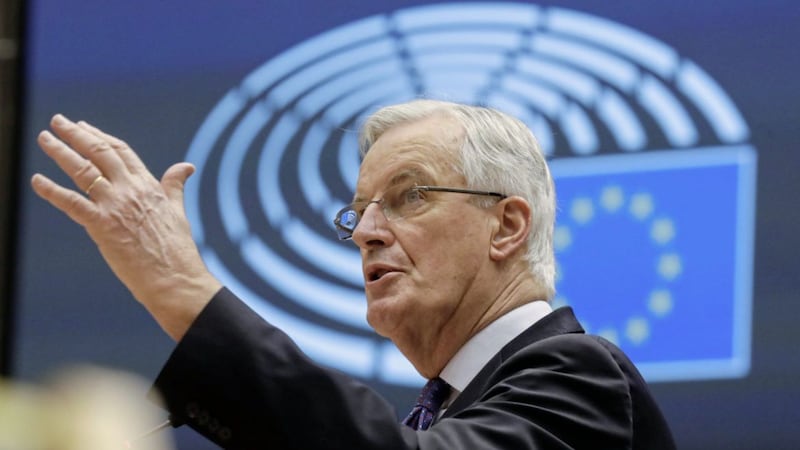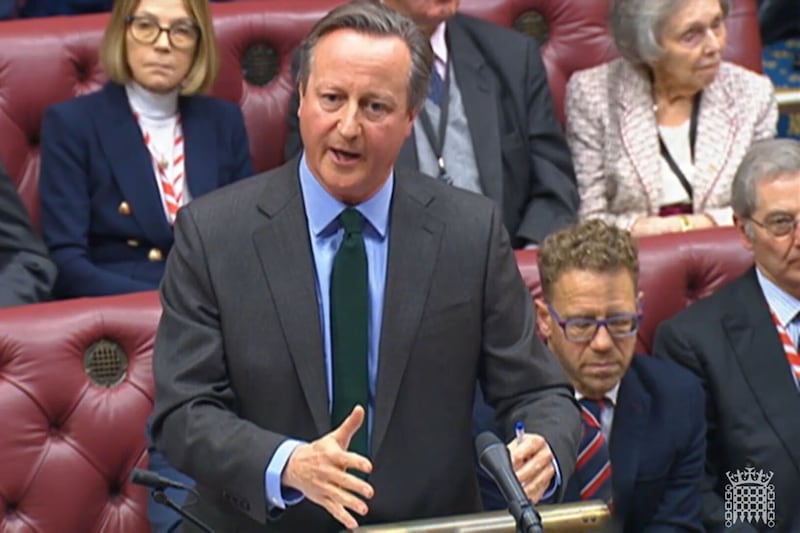So the protocol which could not be changed is about to be changed.
While the trading details have yet to be negotiated (which the EU and nationalists said it would never do and this column said it would) the lesson for Irish nationalism is that your enemy’s enemy is not necessarily your friend.
It was a point well made by republicans from Tone to Connolly. However, believing that the EU would deliver a united Ireland, Sinn Féin and the SDLP repeated John Redmond’s mistake in World War I by taking sides in a dispute between two foreign powers. The EU now hopes to scale down the squabble because of more pressing issues in Europe.
So what was the protocol row all about, how will it pan out and will nationalists learn the lessons of what has so far been a phoney war?
The protocol was not a serious trading proposal. It was a political project aimed at keeping Britain in the single market. As the EU now admits, a hard land border could have been avoided by a more reasonable protocol.
This column previously reported that EU chief negotiator, Michel Barnier, told a closed session of the EU's Brexit Steering Group in 2018 that his strategy was to use Ireland, “to bring them [the UK] towards a customs union.”
The EU’s tactic was understandable, since Britain was also trying to use the north as a negotiating ploy. Instead of saying, “A plague on both your houses”, SF, the SDLP and Leo Varadkar joined the EU side.
Northern nationalism’s decision was largely motivated by understandable historical antipathy towards Britain and London’s scant regard for Brexit’s implications here. For Varadkar it was just political opportunism.
Dominic Cummings now says that Britain intended to dump the protocol, which has surprised Varadkar. (Has Fine Gael never broken a promise?) Perhaps he should read more Irish history. By planning to break the deal, Britain by-passed the EU’s strategy, forcing Brussels into negotiations and abandoning northern nationalists.
The talks will probably muddle through to a trading agreement, but they will face the political problem of the European Court of Justice’s jurisdiction over the north. Nationalists’ attitude to the ECJ shows they have learned little.
The SDLP claims no one raised the ECJ as an issue. This column raised it in February, pointing out its proceedings are hidden from the public, its decisions allow no dissent and its rulings are irreversible. That’s a couple of issues. Here are a couple more.
Although the ECJ rules on EU matters, it is allowed to depart from EU Treaties’ wording in favour of what it considers best for the EU. It also relies significantly on the spirit of legislation rather than its actual words. It is effectively a political court.
SF shares the SDLP’s faith in the ECJ, claiming that business in the north does not see it as important. So who governs us: business or elected representatives? SF wants ECJ jurisdiction over us while we have no democratic voice in its operation.
It describes this lack of democracy as “a red herring”, which echoes unionism’s response to the civil rights demands for democracy and an end to political courts. The ECJ places EU law over Irish law, which represents an interesting departure from the 1916 Proclamation.
Last week, Poland’s courts determined that the ECJ could not overrule them and German courts have made a similar decision. Michel Barnier, pin-up boy of northern nationalists and the man who helped to write the ECJ into the protocol, currently hopes to be French president.
He now demands that France too should no longer be subject to the ECJ, leaving SF and the SDLP looking remarkably foolish. Is the duplicity of French Tory Barnier any different from that of English Tory Johnson?
To date we have been pawns in EU-UK pre-negotiation skirmishing. As long as we continue to side with one against the other, we will remain as pawns. Sadly, nationalism has yet to recognise this.









